Richmond Fontaine - Interview
by John Clarkson
published: 15 / 5 / 2016
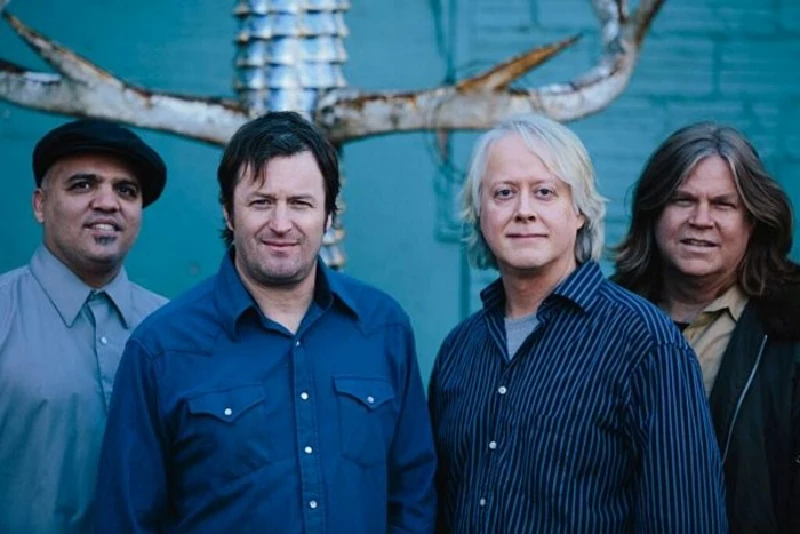
intro
John Clarkson speaks to Willy Vlautin, the vocalist and songwriter with acclaimed Portland, Oregon-based Americana band Richmond Fontaine about its tenth and farewell album, ‘You Can’t Go Back if There’s Nothing to Go Back to'
“You never think that your friend who has been drinking too much for half his life is really going to fall apart,” Willy Vlautin reflects. “You always think that your pal is going to start taking care of themselves or that they will quit eating so much or will find someone that loves them. Then years pass and you start seeing that none of these things are going to happen. They are just starting to fall apart. Nothing is growing or moving or changing. It is just falling apart. It was an idea that I couldn’t stop thinking about, and it became the main focus of this album.” Vlautin is speaking to Pennyblackmusic about his band Richmond Fontaine’s tenth studio album, ‘You Can’t Go Back if There’s Nothing to Go Back to’, which the group has also recently announced will be its last LP. One of the leading bands of the Americana movement, Richmond Fontaine was founded in Portland, Oregon by vocalist and guitarist Vlautin, who had recently moved there from his home city of Reno, Nevada, and bassist Dave Harding. Richmond Fontaine spent over a decade touring small clubs up and down the West Coast of the United States, until, when it signed to the London-based label Décor Records, its 2004 album ‘Post to Wire’ and Vlautin’s tales of American blue-collar life became both a critical and commercial success with European audiences. Richmond Fontaine’s music has over the last two decades embraced a variety of styles, including 'country punk' on its 1999 third album ‘Lost Son’, ambience on its 2002 fourth release ‘Winnemucca’, stark minimalism on its 2006 sixth LP ‘The Fitzgerald’ and alternative rock on ‘Post to Wire’ and its 2007 eighth album, ‘Thirteen Cities’. ‘You Can’t Go Back if There’s Nothing to Go Back to’ is Richmond Fontaine’s first album in five years and since its 2011 album, folk opera and concept record ‘The High Country’, which tells of a love triangle and murder in an Oregon logging town. It is also the only Richmond Fontaine record not to feature in a regular role Dave Harding, who has relocated with his Danish wife to near Copenhagen (but who nevertheless makes a cameo appearance on acoustic guitar on two tracks). Willy Vlautin has described ‘You Can’t Go Back if There’s Nothing to Go Back to’ as being a “middle-aged record”, and, with Paul Brainard’s pedal steel and Dan Eccles’ wistful electric guitar at the fore, it has an elegiac, reflective sound. On the opening song ‘Wake up Ray’, its title character, a hobo, reflects on the demise of his marriage years before after his wife in a rage released a cage bird he bought for her out into a snowstorm. The alcoholic title character of ‘I Got Off the Bus’ returns to his home city after years away to find nothing as it was, while on ‘Whitey and Me’ two cowboys have their horses stolen from them by their drunken, drug-addicted uncle, but realise when they catch up with him that there is no point kicking further someone who has spent his whole life already fighting against himself. The teenage siblings on ‘Three Brothers Roll into Town’ arrive in the big city, but their hopes for a better future quickly become unstuck when the eldest is sent to jail. On the gigantic-in-sound penultimate track ‘A Night in the City’, possibly the darkest song in Vlautin’s career, its central character, trapped in a loveless marriage and dead-end job, goes on one night of rebellion with a colleague from work with an even more turbulent background to wake up the next morning, having slept rough and badly hungover, to find nothing has changed. The hapless narrator of the last track, ‘Easy Run’, meanwhile dreams of finding some kind of lucky break. Willy Vlautin is also a novelist, and has now published four novels, ‘The Motel Life’ (2006), ‘Northline’ (2008), ‘Lean On Pete’ (2010) and ‘The Free’ (2014). A film version of ‘The Motel Life’, about two orphaned brothers who try to escape the law after one of them is involved in a hit-and-run, came out in 2013, and ‘Lean On Pete’, about a fifteen year old boy, who goes on the run with an aged horse, is being adapted into a film by Andrew Haigh, who directed the acclaimed ’45 Hours’, this summer. Since ‘The High Country’, Vlautin has also formed a new band the Delines, in which he contributes lyrics and plays guitar, with former Damnations singer Amy Boone and Richmond Fontaine drummer and percussionist, Sean Oldham, and whose debut album ‘Colfax’ came out in 2014. Long-term fans, Pennyblackmusic spoke with Willy Vlautin about ‘You Can’t Go Back if There’s Nothing to Go Back to’. PB: You have recently announced that this is going to be Richmond Fontaine’s last album. How long ago did you decide that you were going to split? WV: Dave Harding, our bass player, moved with his family to Denmark right after we finished touring ‘The High Country’, and we stopped hanging out together just after that. We are all pals. One of the great things about Fontaine is that we are all friends, but we had just gone our own ways. The band needed a break and with Dave gone we didn’t know what to do next. A year passed, and Sean and I started the Delines, and then we all ran into each other at a party and decided that we all should do another record, even though Dave wasn’t around. I had the songs, so we went into the studio and we were all really happy with the results. It seemed like a good place to stop though, firstly because it was a record that everyone was super proud of – we all feel this is one of our favourite records – so it was the best possible note to go out on, and secondly because everyone was moving in different directions. PB: This record features pretty much everyone who has been involved with Richmond Fontaine at one level or another during the last twenty years. You, Sean and Dan Eccles are all present, and Dave also plays acoustic guitar on two tracks. Freddy Trujillo, who is also a member of the Delines, has taken over from him on bass, and Paul Brainard who has been in and out of the band is also present. It has been produced by John Askew, who produced ‘Winnemucca’ and ‘The High Country’ and also the Delines’ ‘Colfax’. Was that a conscious decision? WV: Yes, you couldn’t, for example, have pedal steel and Richmond Fontaine without Paul. You just pick your favourite people, and that is what we did here. It is good to have your pals around you when you are making a record. It makes a difference. We were also fortunate because when we were recording the album Dave and his family came back to the States for a visit, and Richmond Fontaine got to hang out with him, and he recorded some of the guitar parts for ‘Let’s Hit One more Place’ and ‘Don’t Skip Out On Me’ then. We also got lucky because we got Greg Allen who did the artwork for ‘Winnemucca’, ‘Post to Wire’ and ‘The Fitzgerald’ to do the new record as well. I really wanted him. He had been through some hard times, but we got him back to do this new record and I was very grateful to him. It felt right to get him and also Nate Beaty, who has also contributed one of the drawings on the inner sleeve and did the artwork on ‘Thirteen Cities’, to do the illustrations. It was like all our old friends getting back together. PB: The front cover of the album has a painting of an elderly mustang on it. Why did you decide to put that on the front sleeve? WV: When I was writing this record, the majority of the ideas I was having for it came from the thought that when you are my age which is late 40s all the guys that that you grew up with or hung out with and have lived hard - and being a musician you end up hanging out with guys that live harder than a lot of other people - they all start paying the price. The bill comes due around about this age, whether it is physically, mentally or in marriages falling apart. I was really interested in that because it was happening all around me and to all those guys that you had thought, “Man, he shouldn’t be doing that.” At that same time I was camping in the middle of Nevada with a friend of mine, and we were maybe sixty miles from the nearest town, maybe forty miles from a paved road, and out in the middle of nowhere and on this kind of desert salt flat, and we came across a wild horse that was blind. Its eyes were hanging out of its head and it had lost it way. There are a lot of wild horses in Nevada. It was an old stallion. It had tons of scars, and that was how it was going to die. It was a really intense thing to see, and so the next morning we went back and called the Bureau Land Management, the people who would deal with it in a humane way. I had just written ‘I Got Off the Bus’ and ‘Whitey and Me’, and then I thought, “Jeez, that horse is exactly the same as these guys that are falling apart.” It had run its race. It had lived its life and it had a ton of scars which a wild horse gets from fighting its way through life. He was done. It all began to come together for me when I saw that horse. PB: The abiding theme of your work is escape. If you look at your novels and the Flannigan brothers in ‘The Motel Life’, Allison Johnson in ‘Northline’, Charley in ‘Lean On Pete’, they are all running away from something, while Leroy in ‘The Free’ escapes into an imaginary world. That could also be said about many of the characters on your records, and on this album on tracks such as ‘Three Brothers Rode into Town’ and ‘A Night in the City’. WV: Yeah, I think that you are right. I am obsessed with that idea. It is a very American idea. If I move somewhere else, my life will turn around. Maybe I will be a better person. I will not have the same vices I had. Maybe I will try harder. Maybe I won’t lose my job if I move somewhere that is sunny, and maybe if I move somewhere by the ocean I won’t have the same darkness within me that I had where I grew up. I think those ideas are pretty basic. For me growing up, I felt stuck and I didn’t know how to deal with my life, and so I just dreamed of escape and I think that idea is just in my guts. PB: You, however, yourself escaped because you moved from Reno where you were brought up to Portland. WV: But it was hard. It was like pulling teeth. I am not the most adventurous guy. I had always had jobs. I was never a risky guy. I always liked having a place to live, and liked having a job and money, but I always understood that and the idea of being stuck. I have felt that from such a young age. Throughout the record all the people are at that stage where the bill comes due. The reason I put ‘Three Brothers’ in that is that they are already at that stage and they are just kids. They try to escape by moving to Portland, but they end up living in a bad part of town, the oldest brother is put in jail and they are already at that stage where things are starting to fall apart for them and it is already looking pretty rough for those three guys. They have their love for each other, but their head brother is a rough guy and a guy that is going to have a rough life and it doesn’t add up well for them. Most other guys on the record are in their forties, but the three brothers are still in their teens and early twenties and things are already starting to fall apart for them. PB: What was your own background like growing up? Was it as difficult as some of your characters? Is there a degree of self-acknowledgement in your work that with a little less fortune you may have been one of these characters? WV: My mother had a good job. She was a single mother, but my brother and I had a pretty stable upbringing. Her boss was, however, obsessed with saving people and what we called “the guys by the river.” In Reno there were a lot of homeless drifters and men, but it was not in the same context as there is homelessness in other major cities. It was different as it was mostly men that had fallen on hard times, either through mental illness or drinking or a combination of both. Her boss would try to save these guys. He would go down by the river and pick one of them up and try to get him back on his feet and give him a job, and so throughout my childhood and teens I would see these guys and get to know them. I would work for my mother sometimes through the summers, and I would meet a lot of these guys that had been saved. They had a job for a couple of years, sometimes up to four or five years, and then in a lot of cases they would fall apart again and then you would see them as a bum walking down the street. My mother always used to say if you don’t have a big family, which we didn’t, you are only a few bad moves away from ending up like that, and you have to really watch out. It kind of snuck into who I was. I was really attracted to that side of life from when I was twelve, thirteen, but I was also scared of it. I always imagined that I would be one of them, so I thought I might as well figure out what I would get myself into and I think that is where a lot of that originally came from. A lot of that idea of escapism came from then as well. Reno is a casino town with literally hundreds of motels downtown. When you are a kid you don’t know how to turn on the power or the gas, but I understood that if I had a hundred bucks I could live in a motel room for a week by myself. I guess that idea of that kind of life got tattooed into me then. It was that thought of escape. I always wanted not to live in my house, but I didn’t have the guts or the ingenuity to figure out how to deal with that. PB: On ‘Wake Up Ray’, the first song on the album, Ray goes chasing after a pet bird which his wife has let out into the snow and he has no chance of finding. Did that serve as symbolism to you of a lot of what is to follow on the album? WV: Yes, I think that it was just this idea of your life being past. As you get older, there are certain things that become scars to you. Ray, the narrator of that song, is maybe a drifter. You don’t really know what his deal is, but he is looking back and I had kind of assumed that he had lost his way. He cannot get the image out of his mind that the woman he loved so much and he bought her a pet bird for threw it out into a snowstorm, just to show her husband how much she hated him, He loved her so much it is something that he has never been able to overcome really. It is a pretty intense image. We started the record with that because it does fit a lot of the themes on the record. It just seemed the best place to start really. PB: ‘A Night in the City’, the penultimate song, is one of the bleakest songs that you have ever written. Was it important that you concluded after with ‘Easy Run’, which finishes the album, on some sort of note of tentative hope? WV: I think ‘A Night in the City’ is one of the darkest songs that we have ever done. I know a handful of guys who live like that. They are in a bad marriage and their job, while not a bad job, is not a great job. It is hard though to move out of a job which pays pretty good and which you’re comfortable with in your late forties. So, he finds himself with a woman that doesn’t love him anymore, and there is no way out that he can figure out. He can’t figure out how to move a piece of the puzzle to change the outcome, and so instead of going home as he normally does he goes out with a co-worker and decides to rebel, which means he gets drunk and doesn’t call home, but he is still responsible enough to get up and go to work the next day. His life doesn’t change at all, so you are right. It is very bleak. It is one of my favourites on the record because I have been in that situation, and a lot of guys that I know understand that song. When the film of ‘The Motel Life’ came out, this critic said, “Why would anyone care about two losers?” meaning the Flannigan Brothers. ’Easy Run’ is a response to that because I love those guys and guys like that. It is really hard to understand people who are having a hard time or falling apart. For a lot of people that aren’t in that situation it is hard to understand why a friend or a relative of yours or people that you read about or see living on the streets have fallen into that situation. It can be hard to always have sympathy for them. I see ‘Easy Run’ in some ways as being a really romantic song because it is written from the point of view of someone who might be seen as a loser, who is just hoping to God that they will find an easy run. There is, of course, no guarantee that they ever will. I was thinking a lot when I wrote that song about the idea that if you keep trying that things will break your way and you will hit an easy run, a lucky stretch. You have no other option but to try and do that. You have to always bust your ass because if you don’t you know that nothing good is going to happen for you, but there is, of course, also no guarantee that an easy run will happen. For a lot of the guys on the record there turns out to be no easy run. I put that song at the end though because I didn’t want to finish on a completely black note. PB: Are the Delines going to be releasing a second album? WV: Yeah, we are working on one now. We are just taking a break now from working on that record until Richmond Fontaine stops touring. It is really a fun band to be in. It is nice to being in another band with Sean and Freddy. We also have a new member, Cory Gray who plays keyboards and the horn, and has been writing some amazing horn parts for the new album. I have always liked Amy’s voice and her as a person and, as much as anything, I really like being in the background. It is lucky for me to be in a band that they like me so much that they want me to be in the band as I am not the greatest guitarist player. I can hide in the back and I love it. It is where I am meant to be as a musician. PB: You are quite happy then to stand back from being the front man? WV: Oh Jesus, yeah. I have never really been comfortable being the front man. Some of the most fun that I have had is playing with the Delines, and getting to hear Amy sing every night. That said though Richmond Fontaine is the luckiest thing that has ever happened to me. It has been the best family that I ever had. That was a real lucky break for me, my easy run. PB: So, once Richmond Fontaine finishes could you not see yourself ever being a front man in another outfit? WV: Probably not. Musically I want to do the Delines for a while, and I want to also try and write a couple of instrumental records. To be honest, the only band I would love to be in is the Drive-by Truckers, but as they write such better songs than me I don’t think that I could ever be in them. That is the only other band though I would like to be in. PB: You are currently working on your fifth novel. When you finished ‘The Free’ you said that because it was such a dark novel that you were going to try and write something lighter next time. Is this forthcoming novel any lighter in tone? WV: Well, I tried as hard as I could to write an easier-going novel and then I finished it. It didn’t make sense to me, so I cut it in half and I rewrote it and it is almost done now. I feel good about it, but it still dark. I think I need a lobotomy or some kind of serious mind-altering potion to get me to write lighter (laughs). I always keep thinking I will and I try to and then suddenly the guy goes to the store and it gets dark. PB: Final question. Richmond Fontaine is touring over here in April. Will this be your last tour over here as Richmond Fontaine? WV: We are hoping to do a Fall tour as Fontaine as well. The idea is that we will tour as much as we can and as everybody’s schedule will allow until the end of the year. I know we will be some dates in the States in September, but we are hoping to do one last more European tour in the Fall. PB: Thank you.
Band Links:-
http://richmondfontaine.com/https://www.facebook.com/Richmond-Fontaine-100281195567/
https://twitter.com/rffontaine
Have a Listen:-
Picture Gallery:-
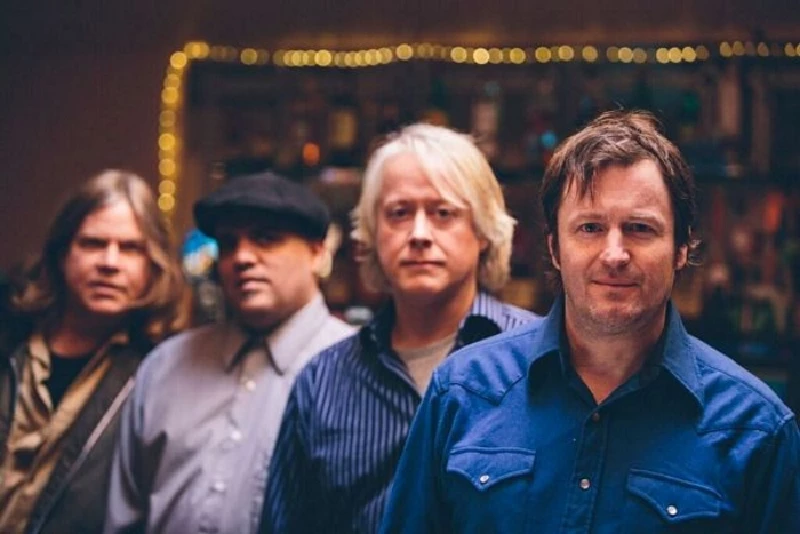
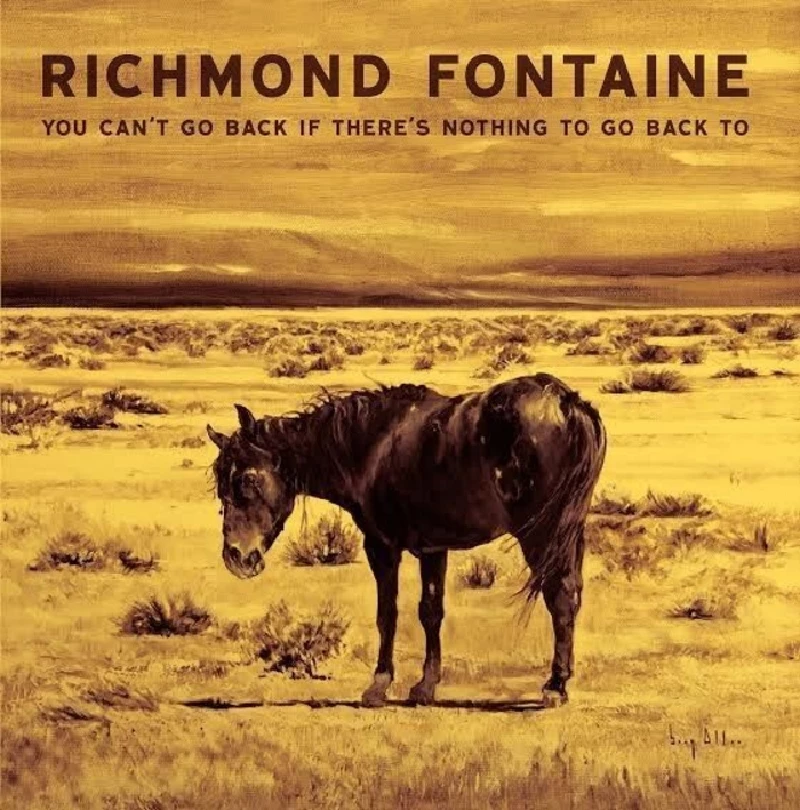
interviews |
|
Interview (2009) |
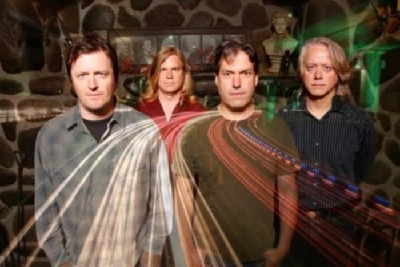
|
| The singer and songwriter with acclaimed group Richmond Fontaine, Willy Vlautin, speaks to John Clarkson in what is our fifth interview with them about the difficult personal events that inspired the writing of his band's eighth album, We Used To Think The Freeway Sounded Like A River’ |
| Interview (2007) |
| Interview (2005) |
| Interview (2004) |
| Interview (2002) |
live reviews |
|
Greystones, Sheffield, 25/4/2016 |
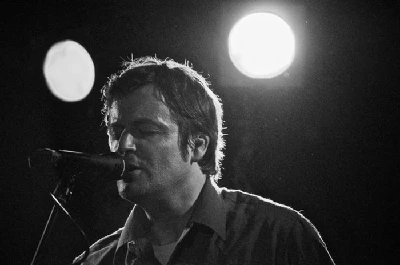
|
| Keith How enjoys Richmond Fontaine's literary Americana at a gig in Sheffield on their farewell tour |
| Luminaire, London, 22/5/2007 |
| Borderline, London, 28/9/2004 |
| Spitz, London, 25/5/2004 |
reviews |
|
We Used To Think The Freeway Sounded Like A River (2009) |
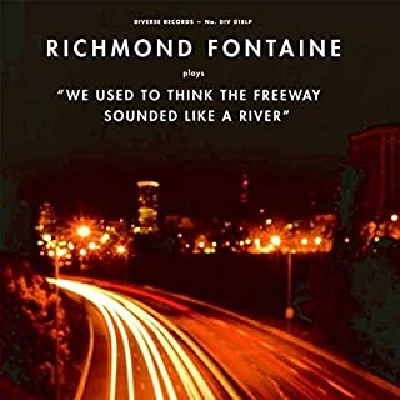
|
| Cinematic and atmospheric eighth studio album from Portland, Oregon-based group Richmond Fontaine, which, while often sadly bleak in its subject matter, is also emphatically life affirming |
| Thirteen Cities (2007) |
| Post To Wire (2004) |
| Winnemucca (2002) |
most viewed articles
current edition
Tossing Seed - InterviewWaterboys - Roundhouse, London, 1/6/2025
Last of the Lovely Days - Interview
Motorcycle Boy - Interview
Lemonheads - O2 Ritz, Manchester, 16/8/2025
Cary Baker - Down on the Corner: Adventures in Busking and Street Music
Brian Wilson - 1942-2025
Robert Forster - Interview
Morrissey - Photoscapes
Belouis Some - Video Vault
previous editions
Flip Side - Raging PagesStereogram Revue - Voodoo Rooms, Edinburgh, 2/12.2015
Bob Mould - Brooklyn Bowl, O2 Academy, London, 11/2/2016
Bill Hicks - Profile
John Clarkson - A Life in Music
Ain't That Always The Way - Alan Horne After The Sound of Young Scotland 2
That Petrol Emotion - That Petrol Emotion, Town and Country Club, London, 1988
School - Interview
Miscellaneous - Minehead, Somerset, 8/5/2009...10/5/2009
Dave Greenfield - 1949-2020
most viewed reviews
current edition
Liarbilitys - VandalheartKirk Adams and Ed Woltil - Eat The Sunshine, Drink The Starshine
Wolf Alice - The Clearing
Big Flame - Peel Sessions 84-86
Silver Biplanes - Coming Up For Air
Good Charlotte - Motel du Cap
Bruce Dickinson - More Balls to Picasso
Suzie Ungerleider - Among The Evergreens
Phew, Erika Kobayashi,, Dieter Moebius - Radium Girls
Rupert Wates - Father to the Man
related articles |
|
Delines: Interview (2014 |
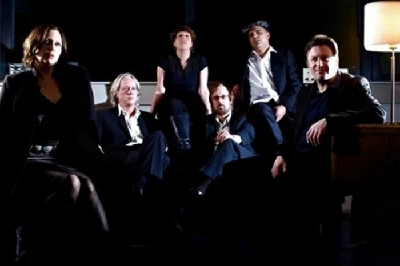
|
| Richmond Fontaine frontman and singer-songwriter Willy Vlautin talks to John Clarkson about his new band the Delines, their debut album 'Colfax', and 'The Free', his recently published fourth novel |
Pennyblackmusic Regular Contributors
Adrian Janes
Amanda J. Window
Andrew Twambley
Anthony Dhanendran
Benjamin Howarth
Cila Warncke
Daniel Cressey
Darren Aston
Dastardly
Dave Goodwin
Denzil Watson
Dominic B. Simpson
Eoghan Lyng
Fiona Hutchings
Harry Sherriff
Helen Tipping
Jamie Rowland
John Clarkson
Julie Cruickshank
Kimberly Bright
Lisa Torem
Maarten Schiethart